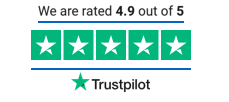
Futures Brokers

The futures market is an arena defined by precision, timing, and trust. Whether trading commodities, stock indices, or digital assets, traders rely heavily on futures brokers to execute trades, manage risk, and connect them to the complex web of exchanges and clearinghouses that keep the global markets moving. Yet, not all brokers are the same. From recommending brokers and those catering to high-net-worth clients to simple order-taker brokers and API-driven specialists, the landscape of futures brokers is diverse and rapidly evolving.
In this detailed guide, we explore the types of futures brokers, how they differ in service and specialization, and how traders can choose the right futures broker based on their goals, capital, and trading style. We’ll also highlight which trading futures brokers stand out for superior customer service—especially those praised on platforms like Trustpilot.
1. Understanding Futures Brokers and Their Role in Modern Markets
A futures broker is an intermediary who facilitates the buying and selling of futures contracts between traders and exchanges. They ensure that orders are transmitted correctly, margin requirements are met, and compliance standards are maintained. But beyond that, today’s futures brokers have become partners in strategy, offering technological infrastructure, risk analysis, and educational resources.
There are several key categories of trading futures brokers, each with a unique purpose and target clientele. Some provide recommendations and advice, others serve sophisticated investors with large portfolios, while certain brokers focus purely on execution. The rise of digital trading has also introduced a new breed—API-connected brokers designed for automation and algorithmic efficiency.
2. Recommending Brokers: Guiding Traders Through Market Complexity
Among the oldest and most respected categories of futures brokers are the recommending brokers. These professionals offer personalized guidance and insights based on a client’s objectives, experience level, and market conditions. While they do not manage funds like a portfolio manager, their role is consultative and advisory.
A recommending futures broker often provides:
- Market analysis and trade ideas: They interpret charts, supply/demand data, and market sentiment to suggest opportunities.
- Risk management advice: Guidance on proper position sizing and hedging strategies.
- Education and mentoring: Helping clients understand market mechanics, contract specifications, and leverage dynamics.
Recommending brokers are particularly valuable for novice traders or those transitioning from equities or forex into futures. They often work through full-service brokerages where human interaction remains an integral part of the trading experience.
Top trading futures brokers that emphasize recommendations often offer hybrid service models—combining personal support with access to robust online trading platforms. These firms maintain dedicated account managers and offer premium research subscriptions, enabling traders to make informed decisions with confidence.
3. Brokers Geared Toward High-Net-Worth Individuals
In the upper echelon of the trading world, futures brokers catering to high-net-worth individuals (HNWIs) occupy a distinct niche. Their clients demand privacy, customization, and institutional-grade execution quality. These futures brokers are not focused merely on trade facilitation but on holistic capital management, where futures serve as tools for diversification, hedging, or speculative opportunity.
Key characteristics of high-net-worth futures brokers include:
- Bespoke service: Personalized trading strategies and one-on-one consultation with senior analysts or brokerage principals.
- Advanced margin solutions: Tailored leverage and financing terms designed to suit larger portfolios.
- Access to multiple exchanges and asset classes: From U.S. indices and Treasuries to energy, metals, and agricultural markets.
- Dedicated relationship management: A single point of contact who understands the client’s risk profile and trading habits.
These futures brokers often integrate with family offices or wealth management firms, allowing for sophisticated cross-asset risk management. Many HNWI-focused trading futures brokers also provide discretionary trading options, where professionals execute trades within agreed parameters.
For affluent clients, the difference between average and exceptional service often lies in execution speed, personal communication, and trust. Firms that succeed in this segment are those that combine institutional-grade infrastructure with boutique-style attention.
4. Brokers That Are Order Takers: The Execution Specialists
At the opposite end of the service spectrum are the order-taking futures brokers—a category that appeals to experienced traders who prefer full control over their strategies. These brokers execute trades exactly as instructed, without offering advice or intervention. Their value proposition centers on speed, transparency, and low cost.
What Defines an Order-Taker Futures Broker?
- No advisory role: They execute customer instructions without interpretation or comment.
- Low commission structures: Since they do not provide recommendations, their fee models are lean.
- Access to advanced trading platforms: Often offering direct market access (DMA) and real-time order management tools.
- Focus on autonomy: Ideal for self-directed traders who understand market volatility, leverage, and risk exposure.
In many cases, order-taker futures brokers operate through online platforms, allowing traders to enter, modify, and close positions instantly. They may also offer multiple data feeds, customizable charting, and connectivity to automated trading systems.
Why They Matter
While some traders value guidance, others prefer precision and control. For algorithmic or day traders, an order-taker futures broker eliminates the friction of advisory bureaucracy and ensures immediate market execution. The efficiency and low-cost model of these brokers make them indispensable to the modern digital trading ecosystem.
5. API-Connected Futures Brokers: The Technology Powerhouses
The rise of automation, machine learning, and quantitative trading has revolutionized the brokerage industry. API-connected futures brokers are now central to the infrastructure of professional and institutional trading environments.
What Is an API in Futures Trading?
An API (Application Programming Interface) allows software systems to communicate seamlessly. In futures trading, APIs enable traders to connect their strategies, trading bots, or analytical systems directly to a broker’s order routing network.
Features of API-Focused Futures Brokers
- Automated Execution – Traders can program their systems to place, modify, and close orders automatically based on pre-set logic.
- Data Access – APIs provide real-time market data, historical price feeds, and tick-level information for backtesting strategies.
- Custom Integration – Professional traders can link brokers’ APIs with Python, C#, or Java-based trading systems.
- Low Latency – Leading API-driven futures brokers host servers close to major exchanges (CME, ICE, Eurex) to minimize delay.
- Algo and Quant Compatibility – Designed to support high-frequency, algorithmic, and systematic trading frameworks.
Who Uses API Futures Brokers?
API brokers appeal to a wide audience:
- Institutional traders seeking efficient execution for high-volume strategies.
- Independent algorithmic traders running custom scripts and models.
- Prop trading firms using statistical arbitrage or machine-learning-based approaches.
These brokers also cater to developers and fintech innovators creating new trading tools, dashboards, and strategy optimizers. They are often recognized as technology-first trading futures brokers, prioritizing connectivity, uptime reliability, and execution accuracy over traditional advisory features.
6. Evaluating Customer Service: Trustpilot’s Top-Rated Futures Brokers
Even in the era of automation, customer service remains a defining factor. The futures market operates 24/7 across time zones, and traders require instant support for margin calls, platform errors, or account adjustments. Trustpilot, one of the leading review platforms, offers valuable insights into which futures brokers excel in client satisfaction.
The Importance of Service in Futures Brokerage
Unlike equities or crypto markets, futures involve significant leverage and complex margining rules. A broker with responsive customer service can prevent costly errors or delays. The best customer service futures brokers provide:
- 24-hour live support with multilingual agents.
- Direct access to licensed brokers via phone or chat.
- Rapid ticket response times.
- Proactive notifications about margin requirements and exchange updates.
Top-Rated Futures Brokers According to Trustpilot


While rankings evolve, as of 2025, several trading futures brokers consistently earn high praise:
- Cannon Trading Company – Celebrated for its personal touch and professional support team. Reviewers often note its combination of deep industry experience and efficient online platforms.
- Interactive Brokers (IBKR) – Recognized for advanced technology and global market access, though some reviews note its steep learning curve.
- NinjaTrader Brokerage – Frequently mentioned for its responsive service, platform reliability, and community-driven support.
- AMP Futures – Applauded for low commissions and customer-centric service, particularly for new traders.
- Tradovate – Rated highly for modern platform design and responsive chat-based assistance.
Trustpilot’s reviews reveal a clear pattern: traders value brokers who combine technology with humanity. Even in automated trading, the assurance of accessible support builds long-term trust.
7. How to Choose the Right Futures Broker for Your Needs
Selecting among the many futures brokers available requires careful assessment of personal priorities. Every trader’s goals, experience, and technical needs are unique.
Key Criteria to Consider
- Trading Style
- Active traders may prefer low-cost, API-driven brokers.
- New traders benefit from recommending brokers who offer guidance.
- Account Size
- HNWIs should look for customized leverage and relationship-based service.
- Smaller accounts benefit from brokers with low minimums and competitive margins.
- Platform and Technology
- Evaluate speed, reliability, and available integrations.
- Customer Support
- Test response times and availability during volatile trading sessions.
- Regulatory Standing
- Ensure the broker is registered with entities like the NFA or CFTC in the United States.
By aligning these factors, traders can find the futures broker that matches both their financial capacity and psychological comfort.
8. The Future of Futures Brokers: Where Innovation Meets Integrity
The brokerage industry is evolving rapidly. As AI trading, cloud infrastructure, and blockchain settlement mature, futures brokers are adapting to remain relevant and efficient. The most successful firms blend tradition with technology—offering algorithmic compatibility without sacrificing the human connection that underpins trust.
Key Trends Shaping the Next Generation of Brokers
- Artificial Intelligence Integration: AI-driven analytics for trade recommendations and risk alerts.
- Blockchain Settlement: Enhanced transparency and reduced counterparty risk.
- Cross-Asset Integration: Seamless trading across futures, options, and digital derivatives.
- Personalized Dashboards: Customizable interfaces that adapt to a trader’s habits and goals.
In this landscape, the futures broker is not just a facilitator—it’s a partner in performance. Brokers that combine high-speed infrastructure, data-driven insights, and responsive service will continue to lead the market.
9. Why the Right Futures Broker Makes All the Difference
Every successful trader understands that execution quality, margin management, and platform reliability can make or break profitability. Choosing among the wide array of trading futures brokers is not about finding the cheapest—it’s about finding the most consistent and trustworthy partner.
- Recommending brokers bring expertise and mentorship.
- HNW brokers deliver exclusivity and tailored solutions.
- Order takers prioritize speed and autonomy.
- API-connected brokers fuel the next generation of algorithmic trading.
Whether you’re a retail trader learning the ropes or a high-frequency professional optimizing milliseconds, the right futures broker will align with your style, risk appetite, and long-term objectives.
As Trustpilot’s reviews confirm, the most highly regarded futures brokers are those that blend innovation with integrity—bridging human insight and technological power in equal measure.
In the complex world of futures trading, understanding the different types of futures brokers is essential. From personalized advisory firms and elite wealth-focused operations to execution-only and API-integrated specialists, each category fulfills a vital role in global market participation. The best trading futures brokers are those who not only offer cutting-edge technology but also maintain a steadfast commitment to their clients’ success through responsive service and ethical conduct.
Ultimately, the choice of a futures broker is both strategic and personal. It’s about finding that equilibrium between cost, competence, and care—a balance that empowers traders to navigate the futures markets confidently and profitably.
Frequently Asked Questions (FAQ)
1. What does a futures broker do?
A futures broker acts as an intermediary between traders and futures exchanges, executing buy and sell orders for futures contracts. They also manage account margins, provide access to trading platforms, and ensure compliance with exchange regulations. Depending on the type of broker, services can range from simple order execution to full-service recommendations and analysis.
2. What are the main types of futures brokers?
There are several types of futures brokers, including:
- Recommending brokers who offer market advice and strategy guidance.
- High-net-worth (HNW) brokers catering to affluent clients with tailored services.
- Order-taking brokers who execute trades exactly as instructed without offering advice.
- API-connected brokers who provide advanced technology for automated and algorithmic trading.
Each type serves different trader needs, from beginners to professionals.
3. What is the difference between a full-service futures broker and a discount broker?
A full-service futures broker provides comprehensive support—research, recommendations, and personal guidance—while a discount broker focuses on low-cost trade execution and access to online platforms. The right choice depends on your trading experience and whether you prefer independent or guided trading.
4. How do API-connected futures brokers work?
API-connected futures brokers allow traders to integrate automated systems or custom software directly with the broker’s trading network. Through APIs, traders can run algorithms, execute trades automatically, access live market data, and manage risk programmatically. This setup is ideal for quantitative and algorithmic traders who rely on speed, precision, and scalability.
5. Which futures brokers have the best customer service?
According to Trustpilot and other review platforms, some of the best futures brokers for customer service include:
- Cannon Trading Company – praised for its personalized support and professional staff.
- NinjaTrader Brokerage – valued for quick responses and platform reliability.
- AMP Futures – known for helping new traders with efficient communication and technical guidance.
- Interactive Brokers (IBKR) – offering global market access with robust support infrastructure.
These firms stand out for combining technology with responsive, human-centered assistance.
Ready to start trading futures? Call us at 1(800)454-9572 (US) or (310)859-9572 (International), or email info@cannontrading.com to speak with one of our experienced, Series-3 licensed futures brokers and begin your futures trading journey with Cannon Trading Company today.
Disclaimer: Trading Futures, Options on Futures, and retail off-exchange foreign currency transactions involve substantial risk of loss and are not suitable for all investors. Past performance is not indicative of future results. Carefully consider if trading is suitable for you in light of your circumstances, knowledge, and financial resources. You may lose all or more of your initial investment. Opinions, market data, and recommendations are subject to change at any time.
Important: Trading commodity futures and options involves a substantial risk of loss. The recommendations contained in this article are opinions only and do not guarantee any profits. This article is for educational purposes. Past performances are not necessarily indicative of future results.
This article has been generated with the help of AI Technology and modified for accuracy and compliance.
Follow us on all socials: @cannontrading
